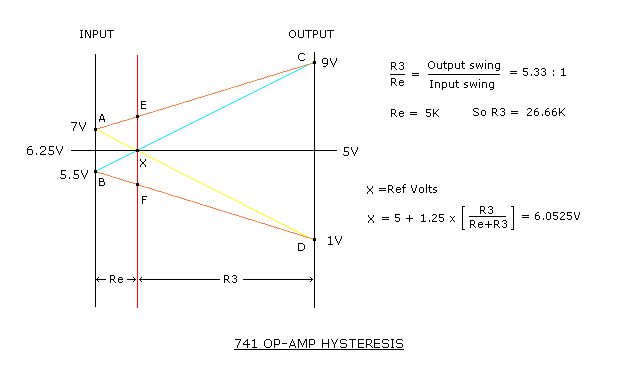| Author |
 Topic Topic  |
|
JUAN DELA CRUZ
Mad Scientist
   
Philippines
476 Posts |
 Posted - Aug 17 2008 : 06:09:51 AM Posted - Aug 17 2008 : 06:09:51 AM


|
quote:
Originally posted by mrgone
You are confusing me here. Why would you want to shut off the charger when the battery is low or did I read that wrong?
If you want to disconnect the charge voltage you can use a relay.
Is this a battery back up system? You keep talking about a "main". So maybe what you are saying is you want a system that will supply voltage to a device like a computer and it will also check the battery charge level. If the power goes out then it will switch to battery power. Is this correct?
Greetings..
Yes Sir. I want to power the LOADs when the 'mains' aren't available (like UPS).
But I want IT also to charge the battery if it is discharge & stop the charging automatically when the battery was fully charge.
( when MSW Inv. was shut-off & the Mains are available )
Thank you |
juan dela cruz
Penniless INVENTOR |
Edited by - JUAN DELA CRUZ on Aug 17 2008 06:19:50 AM |
 |
|
|
JUAN DELA CRUZ
Mad Scientist
   
Philippines
476 Posts |
 Posted - Aug 17 2008 : 06:17:39 AM Posted - Aug 17 2008 : 06:17:39 AM


|
quote:
Originally posted by pebe
A Swiss Army knife is a pocket knife with additional built-in tools that can do many things. But it cannot do any of them as good as dedicated individual tools would.
By trying to use the same transformer for charging and for the inverter, you will end up with a similar thing. You are making complications for yourself which take more and more circuitry to work.
You started out trying to make a simple converter. Why not keep it that way and build a separate charger?
Greetings..
Using the inverter's transformer in charger ckt. minimize the weight of the MSW Inv.
But you're right IT will be more complicated.
What if.. a transformerless battery charger (a SMPS?)
Like a swiss army knife it is small (compact) but it can be useful especially when the application needs compactness.
-----------------------------------------------------------------------------------------

The ratio of Output Swing & input Swing
is equals to the ratio of R3 (positive feedback) &
Re (R1 & R2 resistance in your explaination)
So, if I need to shut down the MSW Inverter when the battery voltage reach 11.8V:
Vmax = 13.5V
Ref. voltage = 6V
(1K resistor in the upper arm & 6V Zener in the lower arm voltage divider)
R3/ Re = Output Swing/ Input Swing
R3/ Re = 9.8V/ 1.1V
R3/ Re = 9V
IF R3 = 120K
Therefore:
Re = 13.33K
R1 = 27K
R2 = 27K
Am I right?
Thank you. |
juan dela cruz
Penniless INVENTOR |
Edited by - JUAN DELA CRUZ on Aug 17 2008 06:21:39 AM |
 |
|
|
pebe
Nobel Prize Winner
    
United Kingdom
1078 Posts |
 Posted - Aug 17 2008 : 06:27:48 AM Posted - Aug 17 2008 : 06:27:48 AM


|
No. The input swing is 13.5V to 11.8V
That's = 1.7V not 1.1V.
If you divide it down with R1 and R2 then according to Thevenin it can be represented by a single resistor Re (that is R1 and R2 equal value resistors in parallel) fed from half the supply volts. So with input going from 13.5V to 11.8V, for your calculation it will be from 6.75V to 5.9V. That's a swing of 0.85V
R3/Re does not equal 9V. R3/Re is a ratio.
|
Edited by - pebe on Aug 17 2008 06:32:14 AM |
 |
|
|
JUAN DELA CRUZ
Mad Scientist
   
Philippines
476 Posts |
 Posted - Aug 17 2008 : 06:45:06 AM Posted - Aug 17 2008 : 06:45:06 AM


|
quote:
Originally posted by pebe
No. The input swing is 13.5V to 11.8V
That's = 1.7V not 1.1V.
If you divide it down with R1 and R2 then according to Thevenin it can be represented by a single resistor Re (that is R1 and R2 equal value resistors in parallel) fed from half the supply volts. So with input going from 13.5V to 11.8V, for your calculation it will be from 6.75V to 5.9V. That's a swing of 0.85V
R3/Re does not equal 9V. R3/Re is a ratio.
BTW.. how many volts will be the difference of the two inputs (+ve & -ve) of the op-amp before it will change status?
You said within 1V.
or 0.55V? ...0.75V ?
Thank you |
juan dela cruz
Penniless INVENTOR |
 |
|
|
JUAN DELA CRUZ
Mad Scientist
   
Philippines
476 Posts |
 Posted - Aug 17 2008 : 07:01:13 AM Posted - Aug 17 2008 : 07:01:13 AM


|
quote:
Originally posted by pebe
No. The input swing is 13.5V to 11.8V
That's = 1.7V not 1.1V.
If you divide it down with R1 and R2 then according to Thevenin it can be represented by a single resistor Re (that is R1 and R2 equal value resistors in parallel) fed from half the supply volts. So with input going from 13.5V to 11.8V, for your calculation it will be from 6.75V to 5.9V. That's a swing of 0.85V
R3/Re does not equal 9V. R3/Re is a ratio.
So, changing the ZENER voltage to 6V5.. the output of the op-amp will be HIGH @ 11.8V ?
Thank you
|
juan dela cruz
Penniless INVENTOR |
 |
|
|
pebe
Nobel Prize Winner
    
United Kingdom
1078 Posts |
 Posted - Aug 17 2008 : 07:13:54 AM Posted - Aug 17 2008 : 07:13:54 AM


|
quote:
Originally posted by JUAN DELA CRUZ
BTW.. how many volts will be the difference of the two inputs (+ve & -ve) of the op-amp before it will change status?
You said within 1V.
You misunderstood what I said. When the op-amp toggles (changes state) the output goes from a high to a low (or vice versa). But it will not go all the way to the rails because there is a voltage drop across the transistor providing the output. The datasheet shows this to be normally 1V so with a minimum battery voltage of 11.8V you will get an output swing of +1V to +10.8V.
The amp will change state when the two input voltage get to be equal.
As the +ve input gets higher than the -ve input, the output goes high.
As the -ve inputs gets higher, the output goes low. |
Edited by - pebe on Aug 17 2008 07:14:34 AM |
 |
|
|
pebe
Nobel Prize Winner
    
United Kingdom
1078 Posts |
 Posted - Aug 17 2008 : 07:19:00 AM Posted - Aug 17 2008 : 07:19:00 AM


|
quote:
So, changing the ZENER voltage to 6V5.. the output of the op-amp will be HIGH @ 11.8V ?
Juan, do the calculations and find what reference voltage is needed. If I do all the work for you you will not learn.
|
 |
|
|
JUAN DELA CRUZ
Mad Scientist
   
Philippines
476 Posts |
 Posted - Aug 17 2008 : 07:29:54 AM Posted - Aug 17 2008 : 07:29:54 AM


|
quote:
Originally posted by pebe
quote:
So, changing the ZENER voltage to 6V5.. the output of the op-amp will be HIGH @ 11.8V ?
Juan, do the calculations and find what reference voltage is needed. If I do all the work for you you will not learn.
Using this formula ...what will be the value of V ?
...the max supply voltage (13.5V)
or the target cut-off voltage (11.8V) ?

Thank you |
juan dela cruz
Penniless INVENTOR |
Edited by - JUAN DELA CRUZ on Aug 17 2008 07:31:24 AM |
 |
|
|
JUAN DELA CRUZ
Mad Scientist
   
Philippines
476 Posts |
 Posted - Aug 17 2008 : 07:38:14 AM Posted - Aug 17 2008 : 07:38:14 AM


|
I think 13.5V right?
See you Tomorrow... Good night here.
Thank you very much Sir. |
juan dela cruz
Penniless INVENTOR |
Edited by - JUAN DELA CRUZ on Aug 17 2008 07:42:11 AM |
 |
|
|
pebe
Nobel Prize Winner
    
United Kingdom
1078 Posts |
 Posted - Aug 17 2008 : 10:18:55 AM Posted - Aug 17 2008 : 10:18:55 AM


|
quote:
Originally posted by JUAN DELA CRUZ
I think 13.5V right?
No.
Rh will be 57.65K.
Ref will be 6.325V |
 |
|
|
JUAN DELA CRUZ
Mad Scientist
   
Philippines
476 Posts |
 Posted - Aug 18 2008 : 01:01:13 AM Posted - Aug 18 2008 : 01:01:13 AM


|
quote:
Originally posted by pebe
No.
Rh will be 57.65K.
Ref will be 6.325V
Greetings..
Sir, in what diagram are you refering?
HERE:

Thank you |
juan dela cruz
Penniless INVENTOR |
Edited by - JUAN DELA CRUZ on Aug 18 2008 01:09:56 AM |
 |
|
|
pebe
Nobel Prize Winner
    
United Kingdom
1078 Posts |
 Posted - Aug 18 2008 : 01:58:41 AM Posted - Aug 18 2008 : 01:58:41 AM


|
quote:
Originally posted by JUAN DELA CRUZ
Sir, in what diagram are you refering?
Sorry, your diagram was not on the screen in front of me when I replied.
It refers to circuit A.
RH = 57.65K
Input volts VR to -ve input = 6.325V
Note that I intended the 741 opamp, not the comparitor shown. A comparitor has no internal pullup transistor and relies on the external resistor shown as RL.
|
Edited by - pebe on Aug 18 2008 02:37:14 AM |
 |
|
|
JUAN DELA CRUZ
Mad Scientist
   
Philippines
476 Posts |
 Posted - Aug 18 2008 : 03:16:38 AM Posted - Aug 18 2008 : 03:16:38 AM


|
quote:
Originally posted by pebe
Sorry, your diagram was not on the screen in front of me when I replied.
It refers to circuit A.
RH = 57.65K
Input volts VR to -ve input = 6.325V
Note that I intended the 741 opamp, not the comparitor shown. A comparitor has no internal pullup transistor and relies on the external resistor shown as RL.
Greetings..
Sir, in calculating the Ref. voltage "x" (6.0525V) shown in your explaination...
What is that "5" ? ...midpoint of the output swing voltage (in your ckt. 1V To 9V ?

Thank you |
juan dela cruz
Penniless INVENTOR |
Edited by - JUAN DELA CRUZ on Aug 18 2008 03:34:39 AM |
 |
|
|
pebe
Nobel Prize Winner
    
United Kingdom
1078 Posts |
 Posted - Aug 18 2008 : 04:07:07 AM Posted - Aug 18 2008 : 04:07:07 AM


|
Yes.
And the 6.25V is the mid-swing of the source voltage driving the effective resistance Re (R1 and R2 in parallel). |
 |
|
|
JUAN DELA CRUZ
Mad Scientist
   
Philippines
476 Posts |
 Posted - Aug 19 2008 : 03:17:29 AM Posted - Aug 19 2008 : 03:17:29 AM


|
quote:
Originally posted by pebe
Yes.
And the 6.25V is the mid-swing of the source voltage driving the effective resistance Re (R1 and R2 in parallel).
Greetings..

Sir, how come "x" will be equals to "6.0525V" in above illustration?
x = 5 + 1.25 *(26.66K/5K+26.66K)
= 6.25* 0.84
= 5.25V
How ?
Thank you
|
juan dela cruz
Penniless INVENTOR |
 |
|
 Topic Topic  |
|

